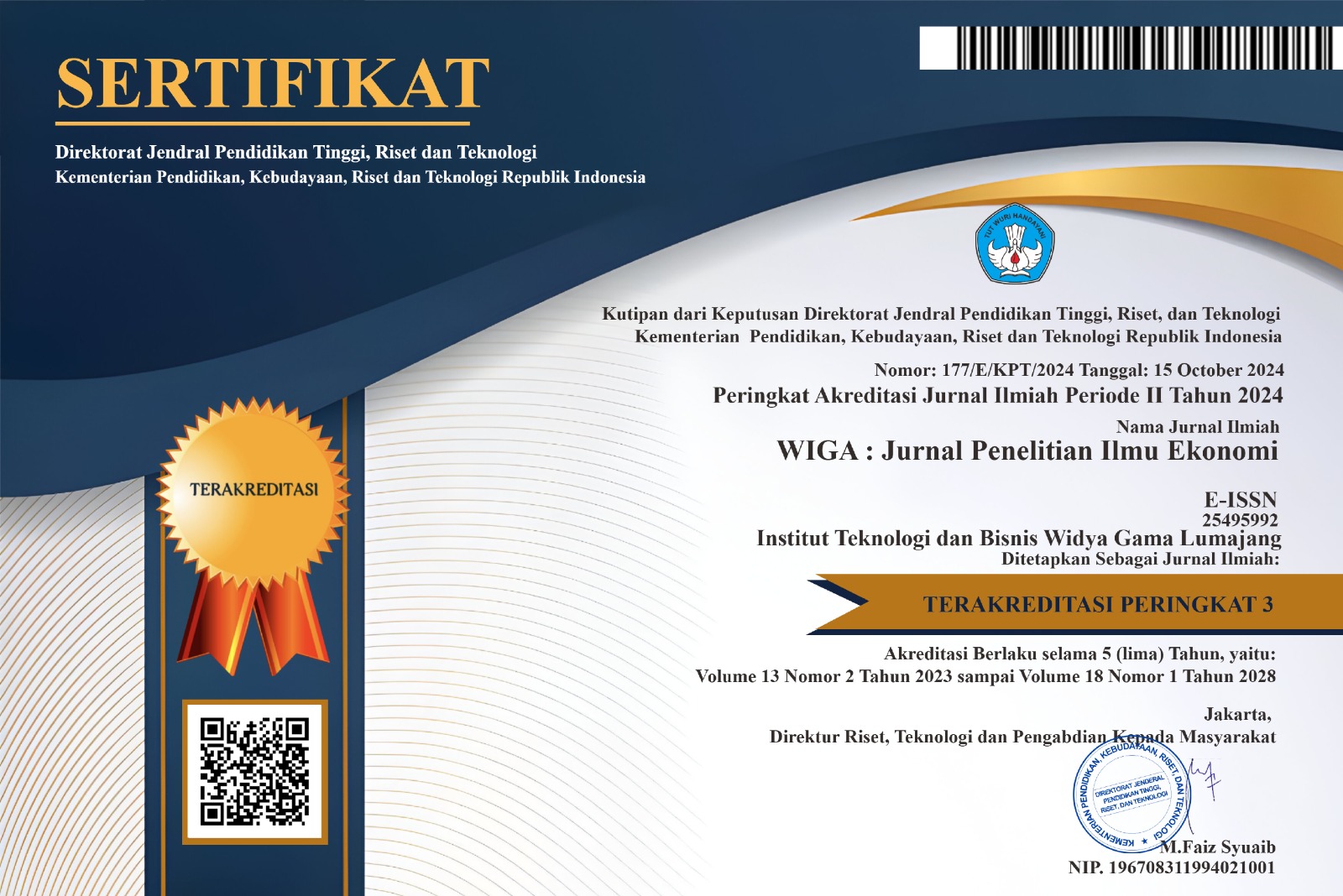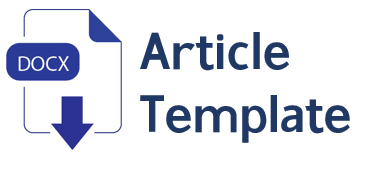The Effectiveness of Law No. 2 of 2020 concerning the Fiscal Policy Strategy of the Government of the Republic of Indonesia in Dealing with the Impact of the Covid-19 Pandemic
DOI:
https://doi.org/10.30741/wiga.v12i1.784Abstract
This study aimed to analyze the effectiveness of Law No. 2 of 2020 as a fiscal policy strategy set by the government of the Republic of Indonesia in dealing with economic problems emerging driven by the Covid-19 pandemic. A total of eight people were informants of this study. Data were collected through observation, interviews, and documentation. The stages of data analysis were collecting, reducing, and presenting the data, followed by concluding. The novelty of this research is shown by the disclosure of the effectiveness of Law No. 2 of 2020 as a government fiscal policy strategy in overcoming the impact of the COVID-19 pandemic. The results showed that three functions, namely convenience, stability, and change, are dimensions of the regulatory function of the law in question, which can have a positive impact on restoring economic activities during the Covid-19 pandemic. The law, including as one of the national economic recovery programs, can be said to be effective during the pandemic.
Downloads
References
Aulawi, A. (2020). Penerbitan peraturan pemerintah pengganti undang-undang nomor 1 tahun 2020 sebagai strategi kebijakan pajak pemerintah indonesia dalam menghadapi dampak pandemi covid-19 terhadap keuangan negara. Jurnal Pendidikan, Akuntansi dan Keuangan Universitas Banten Jaya, 3(2), 111
Badan Pusat Statistik. (2020). Pertumbuhan Ekonomi Indonesia Triwulan III Tahun 2020. Jakarta: BPS Pusat
Feranika, A. F., & Haryati D. (2020). Strategi Kebijakan Fiskal Terhadap Output dan Inflasi Pada Perekonomian Indonesia dalam Menghadapi Dampak Virus Covid-19. Business Innovation & Entrepreneurship Journal, 2(3), 146-152
Firdaus, A. H., Listyanto, E., Talattov, A. P. G., Taufikurahman, M. R. (2013). Kajian tengah tahun INDEF 2020: Menata Arsitektur Ekonomi Pasca Pandemi. Jakarta: INDEF
Juliani, H. (2020). Analisis Yuridis Kebijakan Keuangan Negara Dalam Penanganan Pandemi Covid-19 Melalui Peraturan Pemerintah Pengganti Undang-undang Nomor 1 Tahun 2020. Administrative Law & Governance Journal, 3(2), 331-332
Nasution, D. A. D., Erlina., Muda, I. (2020). Dampak Pandemi Covid-19 Terhadap Perekonomian Indonesia. Jurnal Benefita, 5(2), 212-224
Neuman, W. L. (2014). Social Research Methods: Qualitative and Quantitative Approaches. Seventh Edition. Edinburgh Gate: Pearson Education Limited
Novianti, D. A., Saputri, R., Sari, I. K., Parasian, W., Trihartanto, A.Y., Imanuddin, A. H. (2020). Covid-19: Catatan Linimasa Para Analis Muda. Jakarta: PT. Gramedia Pustaka Utama
Pardamean, A. T. (2013). Dampak Kebijakan Fiskal dan Moneter dalam Perekonomian Indonesia. QE Journal, 2(3), 37
Qamar, N., & Rezah, F. S. (2020). Ilmu dan Teknik Pembentukan Peraturan Perundang-undangan. Makassar: CV. Social Politic Genius
Saputra, H., & Salma, N. (2020). Dampak PSBB dan PSBB Transisi di DKI Jakarta Dalam Pengendalian Covid-19. Media Kesehatan Masyarakat Indonesia, 16(3), 282-292
Silalahi D. E. S., Ginting, R. R. (2020). Strategi Kebijakan Fiskal Pemerintah Indonesia dalam Menghadapi Dampak Pandemi Covid-19. Jurnal Ekonomi & Ekonomi Syariah, 3(2), 156-167
Sugiri, D. (2020). Menyelamatkan Usaha Mikro, Kecil dan Menengah dari Dampak Pandemi Covid-19. Fokus Bisnis: Media Pengkajian Manajemen dan Akuntansi, 19(1), 76-86
Sukirno, S. (2015). Makroekonomi Teori Pengantar. Jakarta: PT. RajaGrafindo Persada
Thaha, A. F. (2020). Dampak Covid-19 Terhadap UMKM di Indonesia. Jurnal Brand, 2(1), 147-153
World Health Organization, WHO Corona Virus Disease 2019 Dashboard, Accessed via https://covid19.who.int/
Downloads
Published
How to Cite
Issue
Section
License
Copyright (c) 2022 Ana Sopanah, Mohammad Fauzi Fikri Haikal

This work is licensed under a Creative Commons Attribution-ShareAlike 4.0 International License.










